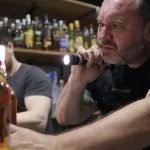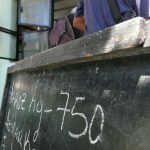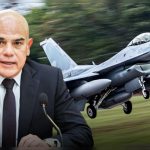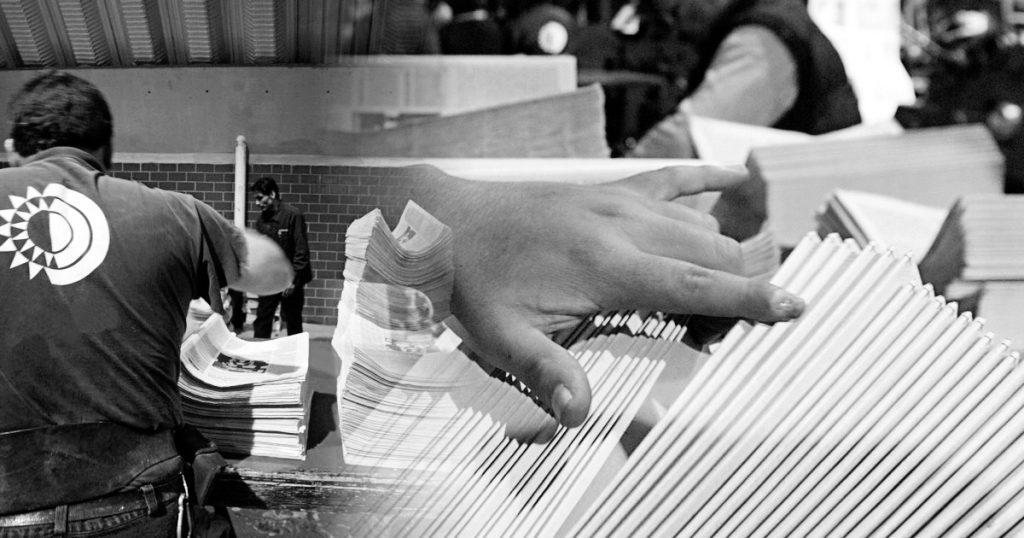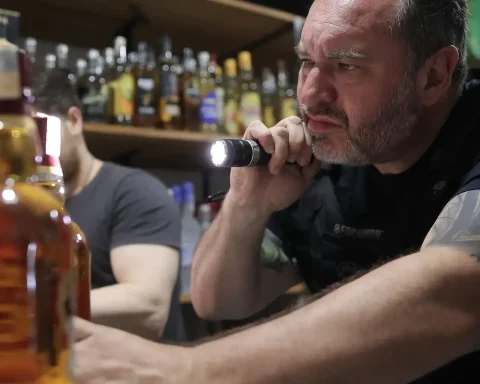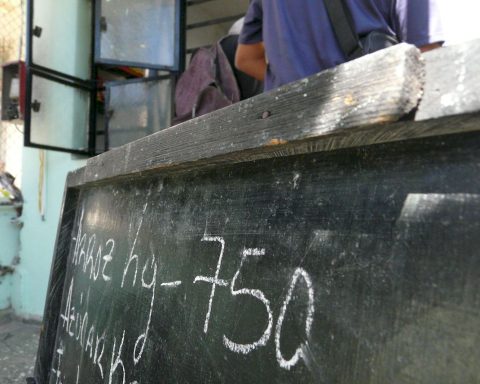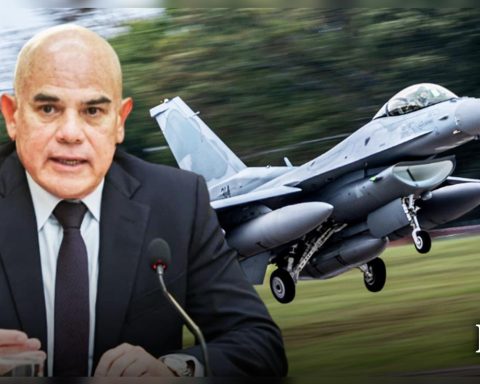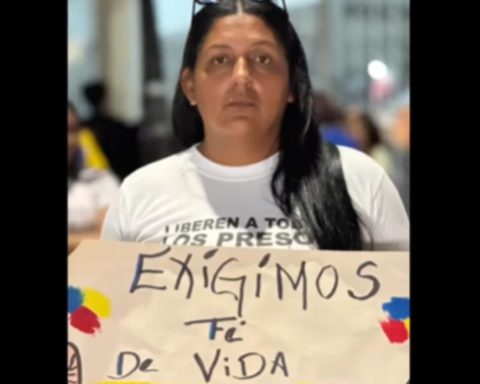Antonia Urrejola said goodbye to the presidency of the Inter-American Commission on Human Rights (IACHR), and as rapporteur for Nicaragua of this organization, during the last hearing on the situation in the country held on December 14.
The emotional goodbye of the Chilean lawyer is a sample of the strong bond she developed with Nicaragua, after her work visit in May 2018 and for keeping her close watch with the country’s human rights crisis.
For his work, Urrejola has earned the respect of many Nicaraguans who have come to the IACHR in search of support in the face of the repression of the Daniel Ortega dictatorship.
“I really want, in personal terms, to thank you for the trust and love you have given me, to thank you for your resilience. If I have spoken, if I have raised my voice, it is precisely because of the work of independent journalists, the work of those who are arbitrarily deprived of liberty today, the work of human rights defenders. Nicaraguans, in people like Mrs. Vilma Núñez that I cannot not mention her, because I believe that she represents what it is to be a human rights defender under all circumstances, her entire life history ”, were some of Urrejola’s words during the last hearing on Nicaragua that he conducted.
Antonia Urrejola warns at the OAS of the “deepening” of the human rights crisis
After being proposed by the Chilean representation in the Organization of American States (OAS), Antonia Urrejola was not reelected as president and commissioner of the IACHR last November. But his work left a mark on Nicaraguan human rights defenders.
“For me, talking about Antonia Urrejola is a challenge, because it is definitely about referring to an exceptional person in every sense. Definitely knowing Commissioner Antonia Urrejola has reaffirmed a series of principles that I have regarding the defense of Human Rights, I think that human rights work is not just any job, it is not like saying I am going to practice my profession as a lawyer ” , said to CONFIDENTIAL Vilma Núñez, president of the Nicaraguan Center for Human Rights (Cenidh).
It all started in 2018
The lawyer arrived in the country in May 2018 with the IACHR mission that she headed Paulo Abrao, former executive secretary of the IACHR, during the social outbreak and the beginning of the deep socio-political crisis, due to the murders caused by the Daniel Ortega regime in that year.
Urrejola’s work at that time was noticed and remained in the memory of many Nicaraguans, who at that time were experiencing critical moments at the hands of the Daniel Ortega regime.
“Commissioner Antonia Urrejola from the first day we saw her, from the first meeting we had in the IACHR mission, because her reaction, her work was very empathetic with us as family members, she was very empathetic, very committed, obviously from her mandate, but also from the empathic part as a person, as a woman ”, said the president of the Mothers of April Association (AMA), Francys Valdivia.
We recommend reading: Antonia Urrejola says goodbye to the IACHR denouncing the “serious situation” in Nicaragua
At that time, Francys denounced the murder of her brother Franco Valdivia, a student who was hit by a bullet while protesting in Estelí park.
Hansell vasquez, a political prisoner and a member of the Reflection Group for Political Prisoners (GREX)He confesses that he has never been with Urrejola, but from a distance he saw his work.
“I remember that in 2018, when the universities were still entrenched, Antonia came to Upoli to see, give support and verify the crimes that were being committed against young people, against students. It is truly audacious for a person without any motive or personal interest, to expose his life, expose his humanity, expose his integrity and go where there is a permanent attack from the police repression, against civilians, against students and enter to That crossfire, those are acts of heroism, truly, that are to be appreciated, especially when talking about the defense of human rights, ”said Vásquez.
Marked by a dictatorship
Urrejola’s family history has also been marked by a dictatorship. His father, Carlos Urrejola, was imprisoned after the coup in Augusto Pinochet in Chile in 1973 and when he was released, she and her family had to go into exile in England.
That episode marked her interest in defending human rights, which later led her to occupy important positions, such as that of advisor to the Chilean presidency on Human Rights, and in organizations such as the Inter-American Development Bank and even the presidency of the IACHR.
“I have no doubt that this personal experience is the same mark, for me at least it was very marking, not only because of the experience of my father, who was a victim of political prison and torture, although he never spoke of the subject, he never spoke of what It happened to him while he was in custody; but also exile, that although I was small and at that age what one likes is to be with their parents, I do remember a lot the repeated conversations of my parents about when they could return to Chile “, she told CONFIDENTIAL Urrejola.
You may be interested in: Antonia Urrejola: “To dismantle the police state, the first thing is to restore freedoms”
After her exile, Urrejola returned with her family to Chile in 1981, was active in student movements protesting the Pinochet dictatorship, graduated as a lawyer from the University of Chile and also achieved specializations in Human Rights and Transitional Justice.
In the 1980s, Urrejola got to know Nicaragua through the news about the Sandinista popular revolution. She also read the poet Ernesto Cardenal, Sergio Ramírez and Gioconda Belli, without imagining that years later she would be the IACHR rapporteur for Nicaragua and would see the Sandinista Daniel Ortega become a dictator.
“I never imagined that if I read these people and learned the history of what the Sandinista revolution was, it would be my turn, years later, to be a rapporteur for that country and experience this very serious human rights crisis. Also, being President Daniel Ortega, that also impacted me a lot, “confessed the human rights defender.
His work

Antonia Urrejola has spoken in important international forums on the situation in the country, work that is appreciated by the Nicaraguans who are victims of the Ortega-Murillo dictatorship.
“We have had the opportunity as released prisoners to be able to express our complaints, to be able to make our complaints visible, in what is the monitoring table for Nicaragua, MESENI. The work that Antonia has done has served so that the IACHR can report to the OAS what is happening in Nicaragua and the OAS can also take measures, and that the international community becomes aware of what is happening. We hope that the same trend will always be followed, but we are sure that Urrejola will be within the IACHR, helping to ensure that these processes do not decline, ”said Vásquez.
“His personal experience, his work experience and his entire career, contributed to opening in some way many spaces for listening, for dialogue, that served and that is what was needed at that time, to be listened to. Still, after four years of crisis that we are practically going to meet, Nicaragua is one of the most invisible dictatorships in the world, since we carry a cross and it is this aspect of the romanticism of the Sandinista revolution as such and the figure of Daniel Ortega as such ”, commented Valdivia.
Heartbreaking work
Urrejola confesses that her work as a rapporteur, as a human rights defender and specifically, her involvement in the Nicaraguan crisis, has marked her.
“You see a lot of tear in this work and along with that tear you see a lot of resilience, a lot of courage, a lot of love. I learned a lot, I learned a lot and that is why I always give Dona Vilma Núñez as an example, to the mothers of April, as an example to the students in Nicaragua, to those feminist women leaders who are currently detained. For me, the engine of my work was precisely the victims, their families and human rights defenders, but especially women, who in all these visits that I comment, the courage that I saw the most was that of women ”, Urrejola commented.
Despite the end of her presidency at the IACHR, Antonia Urrejola continues to be committed to the human rights of Nicaraguans.
Urrejola said goodbye to her post, thus: “I want to express my deep admiration for the Nicaraguan people and point out that it has been a pleasure to be a rapporteur for Nicaragua, and I will continue to raise my voice from wherever, thank you very much.”







